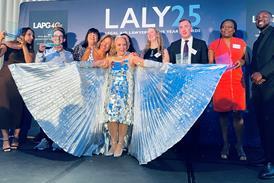Overseas domestic workers are routinely subjected to abuses such as withdrawal of pay - victims, in part of their immigration status.
‘[The employers] did not give me [enough] to eat. Only once a day, limited food. I was hungry. That is why I said I made a sacrifice: you need to work, you sacrifice everything’. This is what Geraldine (not her real name), a domestic worker, said to me in one of the interviews for a study I conducted on migrant domestic workers in the UK. People need to work, and in human rights law and theory it is commonly said that everyone has a human right to work. What does it mean to have a right to work when some in our society have to sacrifice so much in order to work?
It is no surprise that the right to work features prominently in human rights law. Work promotes important values. People feel dignified when they work because they earn income that helps them meet their needs and desires. Work also promotes people’s self-fulfillment. Society values working people, and discredits the idle. Work promotes social inclusion, while unemployment has a stigma attached to it. People form friendships and other social relations at work. It is an important component in people’s identity; this is why one of the first questions that we ask when we meet someone is what work they do. In protecting work as a human right, the international community has recognised the value of work.
But the right to work is also very often conditional upon citizenship as legal status, rather than one’s status as a human being: only a country’s nationals or certain categories of migrants have a legal right to work. Immigration law sets restrictions to the universality of the human right.
In the UK, third country nationals - that is those who do not come from a member state of the EU - usually need a work permit; they have a right to work only for so long as their visas permit. When the visas expire, they have no legal right to work. A migrant who is undocumented - someone who has come into a country without a visa and a work permit or someone who has entered a country with legal documents that later expire - has no right to work at all. Immigration rules mean that – to protect the national labour market - some migrants do not have a right to work, or that their right to work is very restricted.
Geraldine, the worker quoted above, arrived in the UK under an overseas domestic worker visa. About 17,000 such visas are issued each year for workers who accompany visitors in the UK for periods of up to six months. This visa made her right to work conditional upon being employed by the employer with whom she arrived. This visa scheme was recently slightly amended, but remains highly restrictive. These types of visa give the employers the sense that they own the employee, because they ‘own’ the employee’s right to work. This sense of ownership may explain why the employers often keep the employee’s passport.
Geraldine was never paid for her work, even though she worked extremely long hours, with no time off. Having escaped her abusive and exploitative employers, she no longer had a right to work. Yet she was desperate to do so. She had dependants back home whom she had to support or they would become destitute. Having no visa, she found various part-time, exploitative jobs. The vulnerability that was at first caused by her very restrictive visa terms became even more extreme once she took on a purely undocumented status. But Geraldine, like many other workers in this kind of situation, was too scared to go to the authorities. The fear was that the police would arrest, detain and deport her – a threat that employers often use.
To make things worse for undocumented migrants, because they have no right to work, any employment contract that they form is illegal in English law. For this reason, they do not have any rights stemming from their contract – they cannot even claim wages for work that they have performed. One undocumented worker told me: ‘Sometimes if you have an interview and you tell [the prospective employers] that you don’t have papers, they take advantage of you and they give you a small salary’.
The exploitation of certain categories of migrant workers by employers who take advantage of their vulnerability created by immigration law is troubling. That the state sometimes creates this vulnerability through immigration rules is morally repulsive. It also violates their right to work, if this right is understood as a right to work in fair and just working conditions or a right to non-exploitative work.
To the extent that certain labour rights are human rights, these cannot be made conditional on a work permit. Immigration rules should not be enforced in breach of human rights. If immigration control is the aim of restrictive regulations, then they will probably be counterproductive: the more employers know that they can exploit undocumented workers, the more they will seek to employ these workers. Most importantly, it is problematic as a matter of principle, and it breaches the right to non-exploitative work, which is implicit in human rights law.
Virginia Mantouvalou contributed to ’Fair and Free: Labour, liberty and human rights’, published by the Fabian Society in partnership with the Labour Campaign for Human Rights and supported by the Joseph Rowntree Reform Trust






























4 Readers' comments